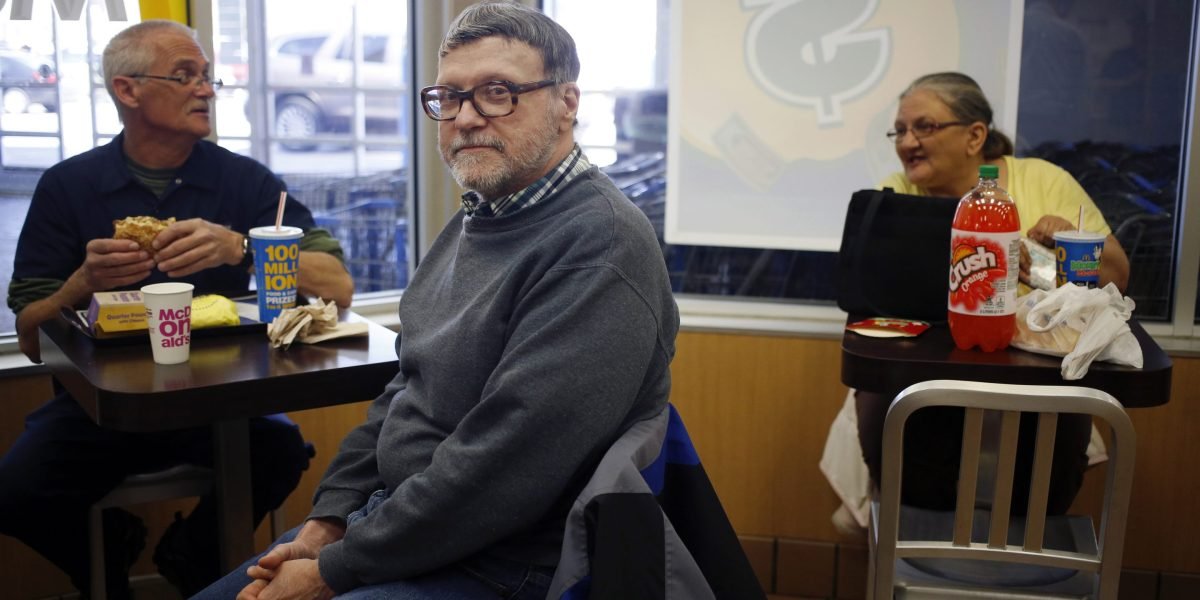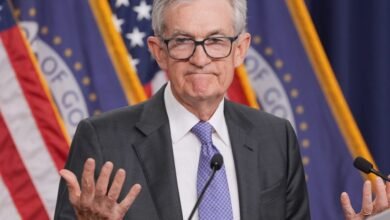
Americans have lost their appetite for Big Macs and fries as McDonald’s reported its first sales drop in nearly four years, citing inflation-weary customers pulling back from fast food. But there’s a missing part of McDonald’s equation that hasn’t widely been taken into account, argued Stephen Zagor, food and restaurant consultant and adjunct assistant professor of business at the Columbia Business School: the election.
“Because of the constant drumbeat of the political parties saying, ‘You’re feeling bad; we know you’re feeling bad, so we want to solve your problem,’ I wouldn’t be surprised if a lot of that doesn’t relieve itself until the elections,” he told Fortune.
Political spending has skyrocketed during the 2024 presidential election, projected to reach $16 billion this year alone, with both political parties hammering messages about inflation to curry favor from down-and-out Americans. A May Harris poll found negative sentiment about the economy has increased as the election approaches, with 56% of respondents believing the U.S. is in a recession—despite signs of easing inflation. This widespread fear in the face of a strong economy indicates a vibecession is here to stay.
Those negative sentiments have come for McDonald’s, Zagor said. The company reported a 1% drop in same-store sales in the U.S. There was a similar trend for global same-store sales, though McDonald’s attributed the problem to slower store traffic in France and the Middle East fell due to boycotts sparked by the war in Gaza. The fast-food giant expects U.S. same-store sales to remain lower for the next few quarters. Not for the first time, McDonald’s has acknowledged U.S. consumers’ pain.
“Beginning last year we warned of a more discriminating consumer, particularly among lower income households—and as this year progressed, those pressures have deepened and broadened,” CEO Chris Kempczinski said during Monday’s earnings call with investors.
The vibecession hits fast food
Fast-food prices have historically been a delicate subject for cash-strapped costumes, Zagor said. When consumers feel pinched—particularly lower-income consumers who are hit harder by higher inflation—food becomes a particularly sore spot.
“We buy food as an emotional experience,” he said, “much more than most other products that we buy.”
Because McDonald’s serves consumers on the tightest budgets, its customers are likely to be the most “emotionally reactive” to ruminations from political candidates about the state of the economy, as well as higher food prices, Zagor said.
An imminent election being to blame for fast-food sales woes isn’t unprecedented. In 2016, fast-food companies also reported feeling pinched by the political climate, with some CEOs going so far as to attribute poor sales to the election season.
“When a consumer is a little uncertain around their future and really trying to figure out what this election cycle really means to them, they’re not as apt to spend as freely as they might have even just a couple of quarters ago,” CEO Todd Penegor said in August 2016.
CEOs of Yum! Brands, which owns KFC and Taco Bell, as well as Starbucks, both made similar comments about election unrest impacting sales. Even McDonald’s then-CEO Stephen Easterbrook noticed the trend.
“There’s just a broader level of uncertainty in consumers’ minds at the moment, both trying to gauge their financial security going forward, you know, whether through elections or through global events, people are slightly mindful of an unsettled world,” he said in a July 2016 earnings call.
McDonald’s did not respond to Fortune’s request for comment.
The McSlump won’t last
Though inflation is cooling, consumers may still not quickly internalize that and change their shopping patterns on a monthslong delay, Zagor said.
“It’s just a matter of time,” he said. “McDonald’s is playing the waiting game, appealing to customers still feeling the pinch, even if you know that grip is kind of loosening. Nine months from now, or whenever, we’ll start to kind of see a turnaround on an industry level.”
McDonald’s has experienced troubled waters before. Prior to Kempczinski helming the company in 2015, McDonald’s was struggling to compete with concepts like Shake Shake and Chipotle. Kempczinski advocated for paring back the chain’s menu and streamlining international operations. In 2019, it had done over $100 billion in total sales.
The fast-food chain’s current slumping form will likewise be short-lived, Zagor argued. The signs are already there: McDonald’s $5 Meal deal introduced in June as a limited-time promotion was extended through August. The company said in its Monday earnings that sales for the meal bundle have exceeded expectations. After the promotion was announced, foot traffic to U.S. stores significantly increased.
“It’s going to be a blip,” Zagor said. “They’re going to come back. They always come back.”
Source link




